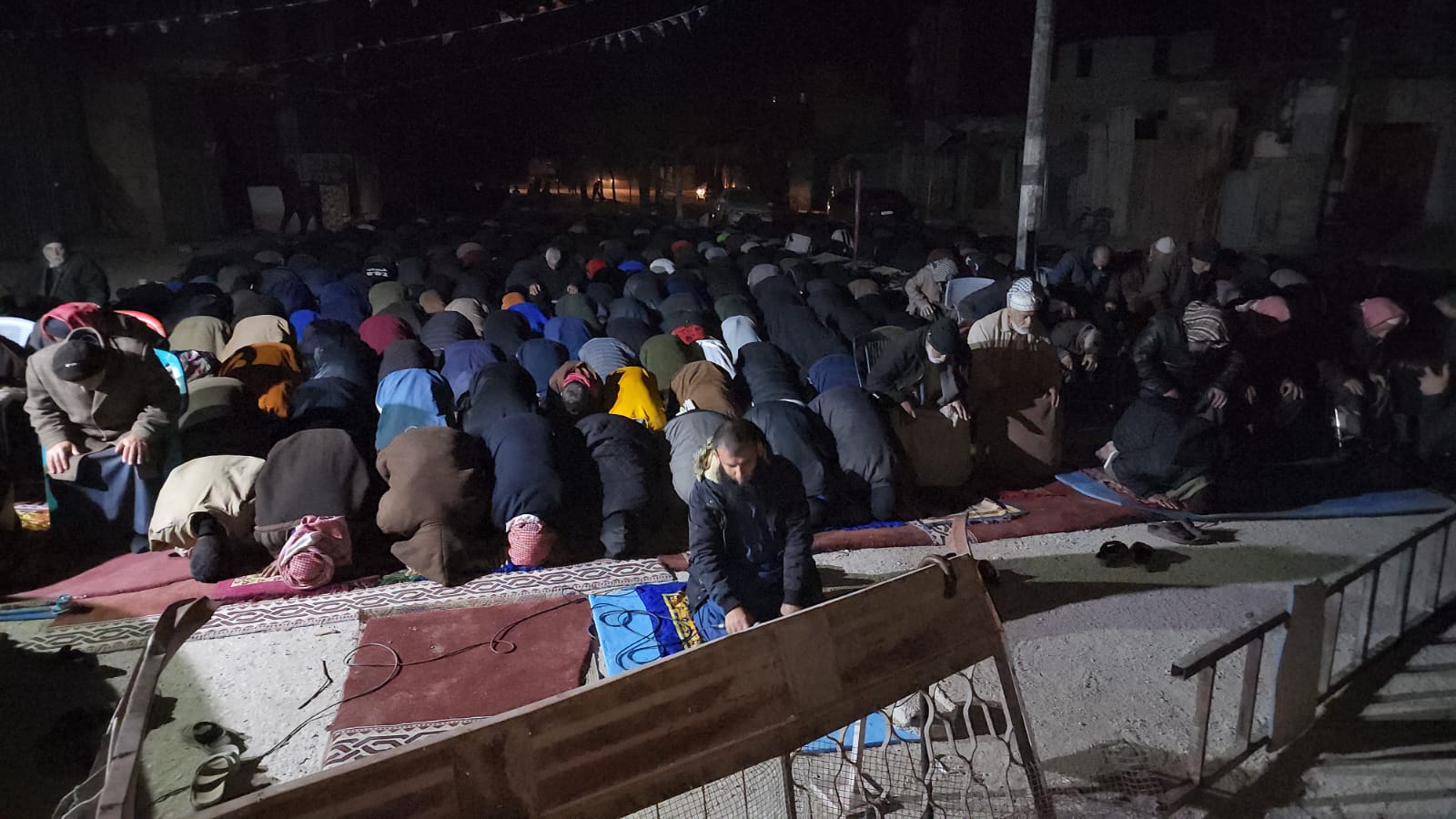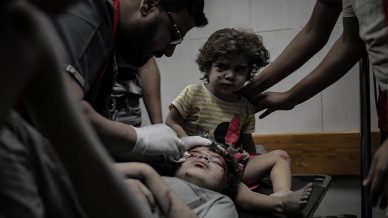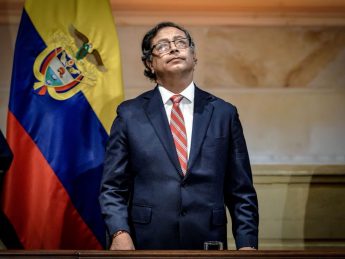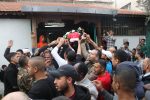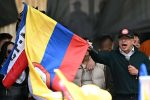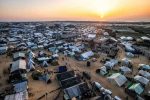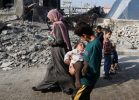By Wafa Aludaini
As Ramadan arrives, Palestinians across the Gaza Strip insist on celebrating the fasting month despite the ongoing Israeli atrocities, devastation, and mass starvation.
Ramadan, the month of fasting, worship, service, communal gathering, and spiritual development, is one of the most sacred and peaceful times for Muslims. During this month, Muslims observe a strict fast from dawn until sunset. The fast is broken at the end of the day with a festive meal called an iftar, where families meet in joyful gatherings, and it is often customary for people in Gaza to visit their relatives and friends following iftar. People commonly decorate their homes, neighborhoods, and streets with lanterns and lights welcoming the holy month.
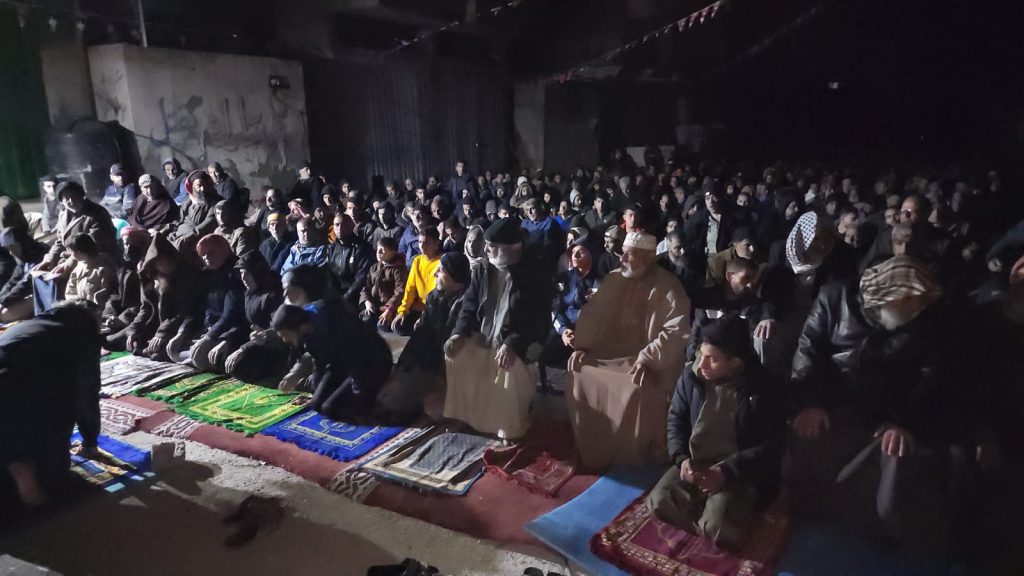
This year, Ramadan preparations are taking place as Gaza reels under Israeli continuous assault. Amidst the ruins of the Alhuda Mosque in Yebna Refugee camp in Rafah, Palestinians remove debris, cleaning the area up in preparation to be used for prayer during the fasting month of Ramadan. Israeli occupation warplanes flattened Alhuda in February, murdering at least 12 Palestinians and injuring dozens of others, whose houses were close to the mosque. ‘Aed Abu Hasanain, the Mosque’s Imam, says, “Despite the extensive damage to our mosque, which was built in the 1950s, and despite the ongoing genocide, we will pray and call for prayers in it.” According to Abu Hasanain, “It’s the only mosque in the whole area. Palestinians break their fast when they hear AlMagrib prayer from it, and many people spend long hours praying here.”
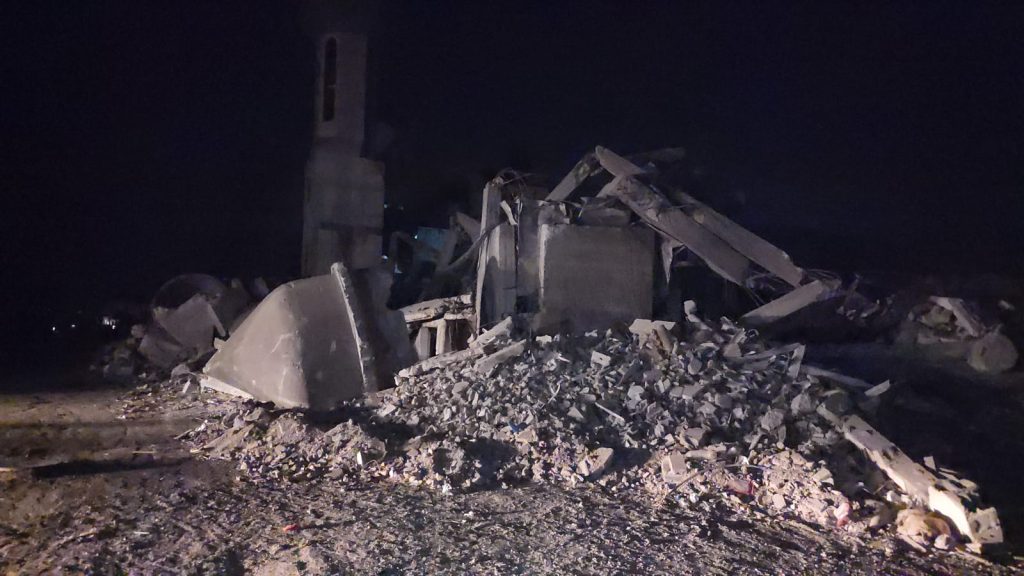
Ahmad Abu Jazar, a resident declares that the people in the camp can’t taste Ramadan without reciting the special night prayer called the Tarawih, the peaceful evening gatherings where families go together to the mosque to pray. “This year, people may fear going out at nights because the Israeli bombing usually intensifies during the night,” says Abu Jazar, “but we insist on going to pray.”
This year, the sound of Ramadan is quite different: the call of the drone rings out across Gaza, while the sounds of voices calling to prayer are missing in most areas, from the widespread destruction and the shortage of electricity, which was cut off on the first day of the war. Since the onset of its genocide in Gaza, the Israeli occupation has destroyed and damaged at least 1000 mosques and assassinated more than 100 preachers, religious scholars, imams, and Quran mentors.
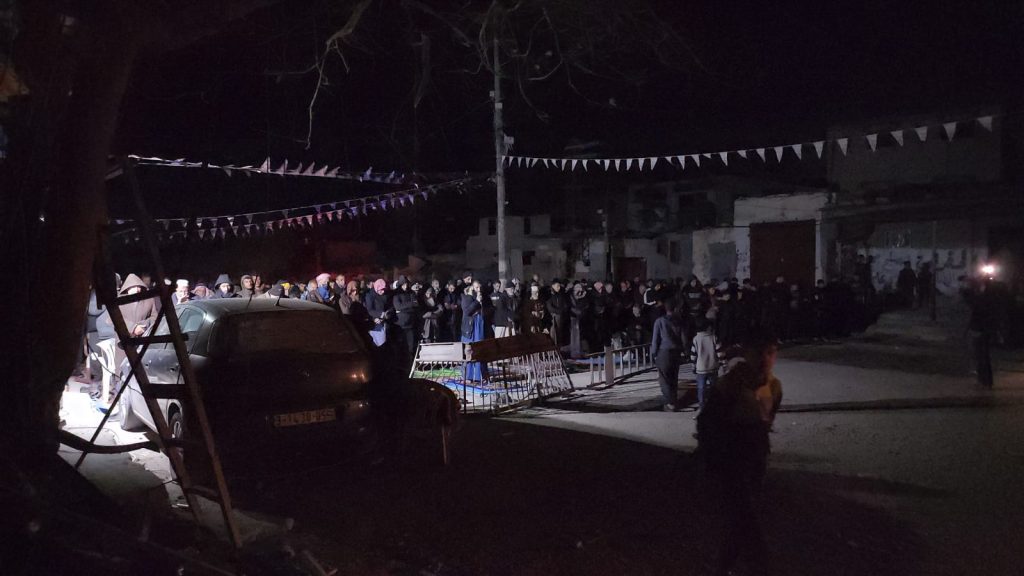
The relentless Israeli assault in the Gaza Strip casts an especially dark shadow on the festivities. Decorations are scaled back due to the closure of borders, bombing of factories and shops, and the lack of materials. Very few vendors are selling traditional décor in their stores this year.
In Deir Albalah town’s market, Ahmad Barghout, a vendor, says, “I used to manufacture lanterns every year and sell large amounts of them, but this year, there are no materials to make them from.” Khaled Oun purchased four lanterns for his four children from Barghout, telling the PIC that he used to accompany his kids to the market in the days before Ramadan to buy lanterns, lights and decorations. He says, “This is the month of Allah so we should welcome it by anything available. I am displaced now living in a make-shift tent in the refugee camp in Deir AlBalah. I used to visit my sisters and aunts and invite them over to Iftar, but I lost 2 of my sisters and their families, and I can’t go back to Gaza City due to the Israeli restrictions banning the movement from the south to the north. I used to decorate my home with lights but now even if we find lights, there is no electricity to light them with. Despite all of that, I bought these lanterns to make my kids happy and ready for Ramadan.”
According to the media information office, more than 70% of houses in Gaza have been destroyed or damaged. Over 75% of Palestinians are now displaced.
In a voice tinged with bitterness, Ahmad Al-Moqayyed, 44, from Jabaliya in the north of the Gaza Strip, says, “We are not able to welcome Ramadan as we are accustomed to every year.
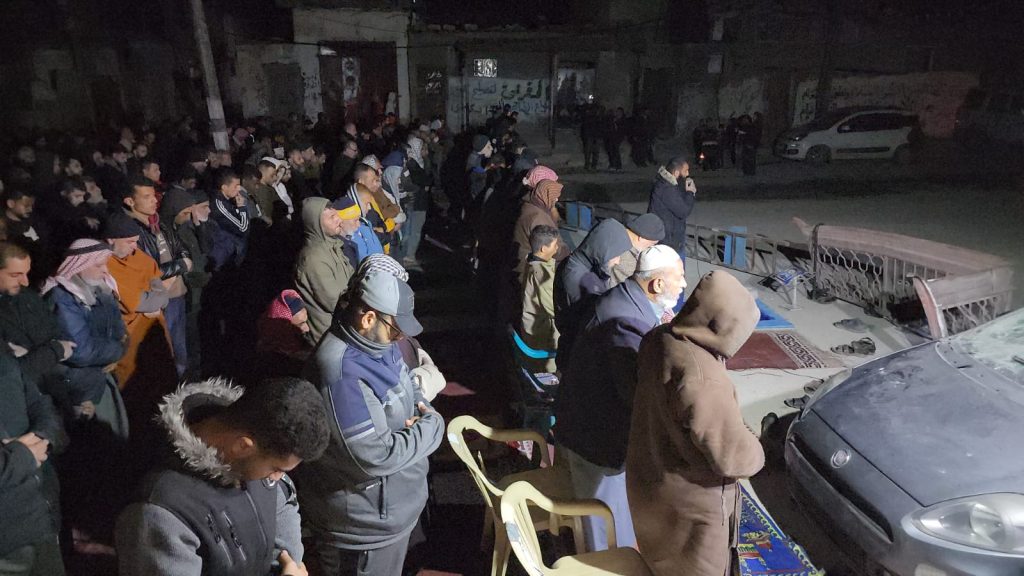
“Our homes, mosques, and entire neighborhoods have been destroyed or damaged. We used to decorate with lanterns and lights welcoming Ramadan days before it starts,” he said.
“I used to break my fasting with dates and milk and then a big meal usually with meat,” Al-Moqayyed says. “This year, none of these foods can be found here in the north. Even the most basic thing we hugely rely on, the bread, is not available except in very small amounts, and that’s if you survive the indiscriminate Israeli fire in the middle of the bombed-out zones.”
At least 120 Palestinians from the north of the Gaza strip, were murdered by the Israeli fire while trying to retrieve flour for their families from zones near the Israeli tanks. According to Al-Moqayyed, it often takes some families in the north several days to find something to eat. “We can barely even find clean water. Some people resort to drinking non-potable water as they can’t travel far and can’t stand the very long queues to access water.”
Al-Moqayyed says, however, that in many wrecked mosques throughout the north of Gaza, there are clean-up campaigns to welcome the arrival of Ramadan.
As Israel continues its five-month-long genocide against the Palestinian people in the tiny and populous Gaza Strip, the closure of all crossings and banning of access to food or water or fuel is causing people to suffer from alarming hunger, malnutrition, and dehydration. Starvation is sweeping through the blockaded territory, which so far has resulted in the death of 23 babies and a young woman in the north of the Gaza Strip, as aid remains heavily restricted.
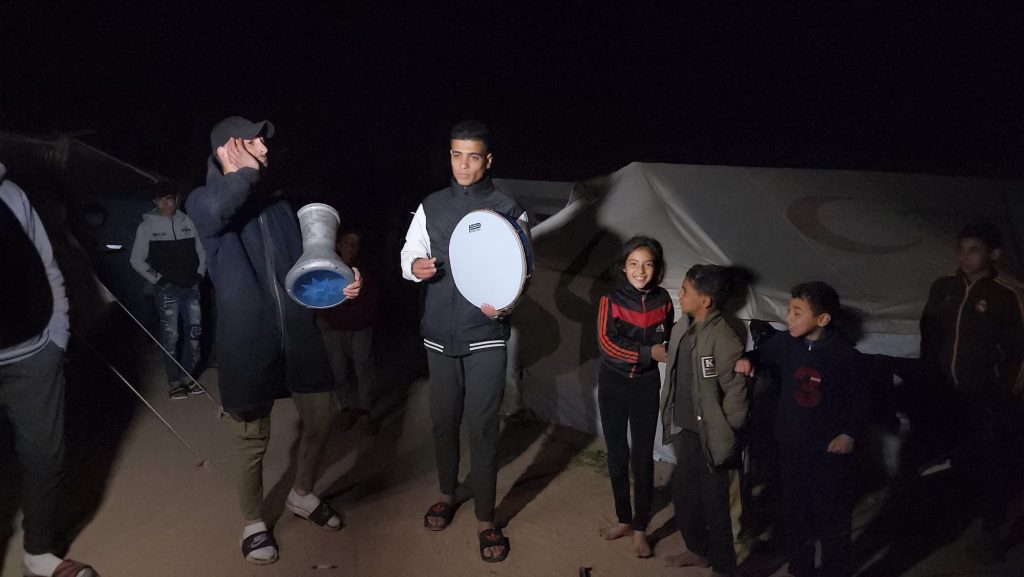
Israel has imposed a blockade on the coastal enclave since 2007, severely halting the flow of goods into and out of Gaza. Because of the blockade, even before the ongoing genocide, half of Gaza’s population suffered from food insecurity, with 80% of the population relying on humanitarian aid. Now, the percentage is higher than that, with a near-total percentage of the population in critical need of aid. Yet, according to Gaza authorities and the United Nations, the level of life-saving humanitarian assistance entering the Gaza Strip, which mostly enters in the southern part of the Gaza Strip, is minimal and is far below adequately meeting the survival needs of the civilian population.
Palestinians across the Gaza Strip are enduring incredible hardships yet display reservoirs of strength, and resilience and insisting on looking for any attempt to keep going on in this life and free their occupied land.
-Wafa Aludaini is a Gaza-based journalist. She contributed this article to the Palestinian Information Center.

